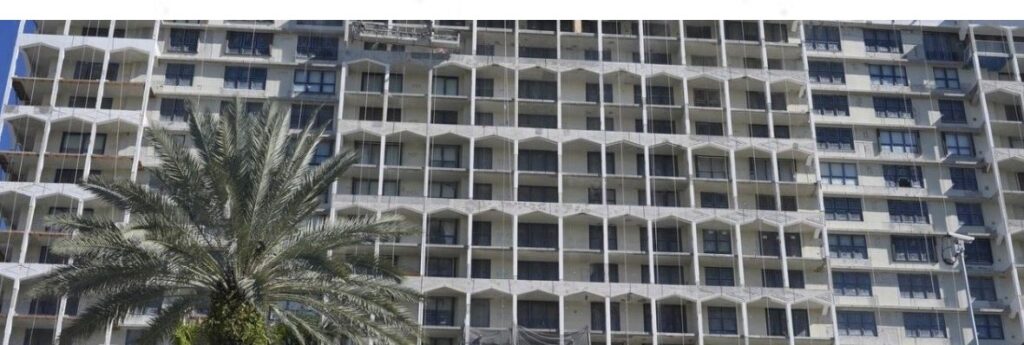Florida condominium owners are looking at higher costs from condo associations in the new year, a consequence of a safety law passed by state lawmakers in 2022. It requires associations to have sufficient reserves to cover major repairs and to conduct a survey of reserves every decade.
Because of the law, older condos – found largely in South Florida, according to state records – are facing hefty increases to association payments to fund the reserves and repair costs.
Gov. Ron DeSantis signed the law in response to the partial collapse of Champlain Towers South, which killed 98 people in Surfside in June 2021. New regulations required condo associations for buildings with three or more stories to file an inspection report focused on structure, maintenance and expected costs for repairs or renovations by Dec. 31.
The report is just a small sector of the large-scale issue in Florida’s condo and property insurance crisis. A May report from the Florida Office of Insurance Regulation noted that the average homeowner’s insurance premium is approximately US$3,600, about $1,000 more than the national average, according to the National Association of Realtors.
In Hallandale Beach, condo owner Kelli Roiter sympathizes with people having trouble paying the higher fees, but she said she supports rules requiring associations to maintain reserves for repairs if it means her oceanfront building – built in 1971 – gets the repairs it needs.
She said her building, a few miles from Champlain Towers South, is showing some of the same problems that were visible before that building collapsed.
“I’m concerned that this building will collapse,” Roiter said. “There are nights I wake up hearing a creak, and I jump. And then I remind myself that, no, no, no, we’re safe. But am I safe?”
Rick Madan, president of the Biscayne Neighborhoods Association, which represents 22 condo associations, said the law is bringing condo owners strife by forcing buildings to take full coverage and bringing forth a blanket solution that doesn’t holistically address the crisis.
Madan said the law puts newer condos in the same category of needing reserve funds, inspection reports and recertifications as much older buildings at the expense of the condo owners.
That’s especially tough for people who retired in South Florida on fixed incomes, Madan added.
“You’re making us do all these reserve studies. You’re making us fund our reserves more, so we have to come up with more money,” Madan said of the Florida Legislature. “On top of that, you’re not giving us any flexibility on the insurance side where the insurance companies are basically making so much profit because they write a policy for $100 million, which they know they’ll never have to pay a claim on.”
Democratic State Sen. Jason Pizzo, who represented Surfside at the time of the collapse, said he agrees with Madan’s point about property insurance.
Pizzo and state Sen. Jennifer Bradley, a Republican, held a condo summit in early December where he warned of transparency among associations about the required projects for repair costs to prevent structural damage.
Nearly 90% of the 1.6 million condos in Florida are more than 30 years old, and Pizzo said it is concerning that they haven’t had critical inspections.
“They’re going to get a milestone inspection, and they may find some immediate repair or replacement requirements as a result of it,” Pizzo said. “That’s not really by operation of law. That’s by operation of common sense.”
Luis Konski, a Miami attorney who deals with construction and commercial liability cases, said previous condo regulations kept fees low by failing to save money for future repairs, and then owners were hit with special assessments when repairs finally needed to be done. Konski said this encouraged many associations to ignore necessary but expensive maintenance, which is what likely led to the Surfside building collapse.
Konski said that if associations can continue to delay maintenance with inaccurate surveys and minimal oversight, it’s only a matter of time before another disaster.
If this article was shared with you by a friend or colleague, you may enjoy receiving your own copy of Travel Industry Today with the latest travel news and reviews each weekday morning. It’s absolutely free – just CLICK HERE.

